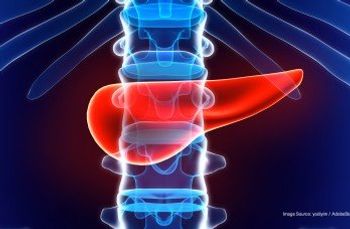
CBM588 May Improve Clinical Outcomes in Metastatic RCC
Analysis of 2 phase 1 trials compared gut biome diversity between standard of care with or without CBM588 in patients with metastatic renal cell carcinoma.
CancerNetwork® spoke with Nazli Dizman, MD, a hematology/oncology fellow at The University of Texas MD Anderson Cancer Center, about future directions related to an analysis of 2 phase 1 clinical trials assessing CBM588’s impact on microbiome composition and dysbiosis in patients with metastatic renal cell carcinoma (RCC) receiving immune checkpoint inhibitors (ICIs). The pooled analysis included findings from a study evaluating nivolumab {Opdivo) plus ipilimumab (Yervoy) with CBM558 (NCT03829111) and a study evaluating nivolumab plus cabozantinib (Cabometyx) with CBM588 (NCT05122546).
Dizman said she was optimistic in elucidating the mechanism of action for the biotherapeutic, CBM588, in patients with metastatic RCC. Subsequently, she hopes to observe improvements in clinical outcomes following competition of a planned phase 3 trial evaluating the clinical activity and gut microbiome modulation capacity of CBM588 combined with ICIs in patients with metastatic RCC receiving frontline ICI combinations. Of note, Dizman encouraged patients to undertake various interventions with strong proof-of-concept evidence, including lifestyle interventions, alternative biotherapeutics, and fecal microbiota transplant (FMT), to potentially improve their outcomes.
The 2 analyzed trials included 39 patients who received standard-of-care (SOC) therapy in combination with CBM588 and 20 others who received SOC alone. Stool samples were analyzed for gut biome diversity and composition at baseline and 12 weeks between the two arms.
Results showed that treatment with CBM588 was associated with a notable correction of gut dysbiosis and depletion prevention of ICI response–associated species, suggesting a plausible mechanism for enhanced clinical outcome with the experimental therapy.
Dizman presented these findings at the
Transcript:
We are very excited about both directions that we have for the future. I am optimistic that we will hopefully find the details of the mechanism of action [of CBM588]. I’m hoping that we would observe improvements in clinical outcomes once the phase 3 trial is completed. I would encourage our patients to participate in studies looking at lifestyle interventions, biotherapeutics, or even FMT, which, so far, has very strong proof-of-concept evidence and is pending a larger trial for hopefully providing our patients better outcomes for the future.
Reference
Dizman N. Impact of CBM588 on gut microbiome composition and dysbiosis in patients receiving frontline immune checkpoint inhibitor (ICI) combinations for metastatic renal cell carcinoma (mRCC). Presented at: 2024 Kidney Cancer Research Summit; July 11-12, 2024; Boston, Massachusetts.
Newsletter
Stay up to date on recent advances in the multidisciplinary approach to cancer.












































